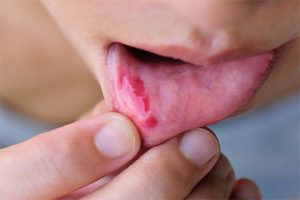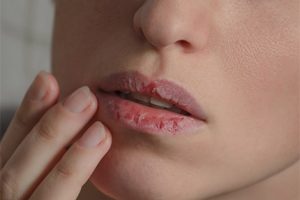Eating disorders such as anorexia and bulimia are responsible for several health-threatening conditions, but did you know that it harms one’s oral health too?
According to a Singapore-based study, 7.4% of females (aged 12 to 26) are vulnerable to severe eating disorders such as anorexia (a condition that typically involves self-starvation due to the fear of weight gain) and bulimia (a condition that typically involves binge-eating and purging large amounts of food due to overwhelming stress).
Both conditions are common symptoms of body image issues, which is known as the state of one being unhappy with their physical appearance. This can stem from the increasing pressure conveyed through the media for people, especially females, to match unrealistic beauty standards.
Eating disorders are life-threatening conditions that are harmful to one’s self-esteem, academic performance and social skills. It is commonly associated with severe mental health disorders such as depression and anxiety, but did you know that eating disorders can negatively affect one’s dental health too?
The common denominator between all forms of eating disorders is that it deprives people of the nutrients they need to nourish their bodies for day-to-day functions. As such, the lack of nutrition inevitably leads to sensitive gums that are prone to bleeding and frequent vomiting leads to high volumes of stomach acid coming in contact with one’s teeth, which will erode the enamel on the teeth and result in a negative change of size, colour and length of teeth.
4 Dental issues that come from eating disorders
 1) Chewing
1) Chewing
Degenerative arthritis of the temporomandibular joint (TMJ) in the jaw is a dental complication that is frequently linked to eating disorders. This joint is located at the point where the lower jaw connects to the skull. When arthritis develops in this joint, it can cause joint pain, severe headaches, and difficulty in chewing.
People with this issue will find it hard to open and close their mouths. Therefore, it is difficult for them to consume nutritious foods of harder textures such as vegetables, fruits and meat. And this may drive them to adopt a softer, restrictive diet that often lacks proper nutrition.
2) Mouth injuries
Purging can cause swelling, gashes, and cuts inside the mouth, particularly on the upper surface known as the ‘soft palate’. Such injury is a red flag for dentists because normal daily habits rarely cause harm to this area.
Another sign of purging is bruising on one’s knuckles as people tend to bite their skin in an attempt to purge. A regular binge-and-purge cycle can result in salivary gland enlargement. Enlarged glands can be traumatic and are usually visible to others, which attributes to further emotional distress and low-self esteem.
 3) Gum diseases
3) Gum diseases
Poor diet frequently results in nutritional deficiency. Calcium, iron and B vitamins are all nutrients that promote dental health. Inadequate calcium enhances not just gum diseases but tooth decay too; even if an anorexic person consumes enough calcium, the body requires sufficient vitamin D to absorb it. Inadequate iron can promote the development of mouth sores.
The most common gum issue is gingivitis, which is defined as inflammation of the gums. Signs of gum inflammation include bleeding during tooth-brushing, swollen-looking gums, and red gums.
4) Bad breath, dry mouth and cracked lips
Inadequate vitamin B3 (also defined as niacin) levels can contribute to bad breath and the formation of canker sores. As mentioned earlier, gums can become red and swollen, almost glossy-looking, as a result of gum diseases, which can be contributed by severe dehydration. As such, the mouth can become incredibly dry, and the lips can become blistered and cracked.
3 Ways to prevent further damage
 1) Seek support from loved ones
1) Seek support from loved ones
We are all relational beings that rely on one another for support during trying times. People who are struggling with eating disorders should not let their thoughts fester in isolation, instead, they should receive emotional support from their loved ones.
The journey to recovery from an eating disorder is anything but easy as it is both a physical and mental battle. Those who are on the path of recovery deserve an ample amount of love and encouragement from those who care about them.
2) Seek professional help
As mentioned earlier, eating disorders are usually paired with mental disorders. Thus, it is highly recommended for people who are struggling with an eating disorder to seek professional help from a therapist or psychiatrist.
Mental health professionals may encourage patients to keep a food journal that will be reviewed during each counselling session. The purpose of a food journal is to identify what triggers unhealthy eating behaviours and how they can be rectified with the right tools.
 3) Seek a treatment plan from the dentist
3) Seek a treatment plan from the dentist
Individuals suffering from eating disorders frequently seek professional help from their dentist due to issues found in their mouth and teeth. A dentist or dental hygienist is taught to identify the oral symptoms of a severe eating disorder. They will first educate the patient on the oral and bodily harm that will arise from an eating disorder and craft a treatment plan that will help resolve those oral complications.
The dentist should always assure their patients that their relationship is kept confidential and that their office is a safe space for them to share their struggles and progress towards recovery.
Dentists play a significant role in supporting patients through the ups and downs of an eating disorder as they should always convey compassion, understanding and patience towards their patients who seek dental aid.
As you can see, eating disorders have several significant effects on one’s oral health. However, it is treatable when empathy is present. The common denominator between the three roles listed above that serves as an aid for people who have eating disorders is that each person can provide emotional and mental support.
Your dental health is imperative to your overall health. With that being said, if you are due for a dental checkup, book an appointment with us!
Have an interesting topic you would like us to cover? Just let us know!
References:
1. Dental complications of eating disorders. (2018, February 22). Retrieved March 31, 2021, from
https://www.nationaleatingdisorders.org/dental-complications-eatingdisorders
2. McGuire, J., & McGuire, J. (2016, December 30). How eating disorders are damaging to teeth. Retrieved March 31, 2021, from https://www.eatingdisorderhope.com/blog/eatingdisorders-damaging-teeth


 1) Chewing
1) Chewing
 3) Gum diseases
3) Gum diseases
 1) Seek support from loved ones
1) Seek support from loved ones
 3) Seek a treatment plan from the dentist
3) Seek a treatment plan from the dentist

